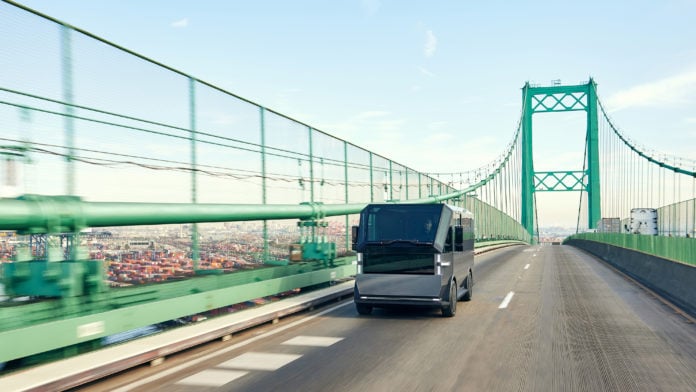The Los Angeles area has become a hub for the electric vehicle industry, spurred on by the actions of California legislators and the enthusiasm of local consumers who have made the state a global leader in EV sales.
California battled with the Trump administration over emissions standards, but industry analysts say the state’s climate regulations align closely with Biden’s climate goals.
Auto analysts in particular point to California’s mandate that all cars and trucks sold in the state by 2035 must be zero-emission vehicles.
“We’re certainly expecting the industry to do well, and now that we have a more EV-friendly administration, we’re very hopeful that what President-elect Biden said during his campaign will come true,” said Judy Kruger, senior director of strategic initiatives and industry cluster development at the Los Angeles County Economic Development Corp.
The economic development group released a report last year projecting significant growth for the electric vehicle industry over the next decade. The report was released at the beginning of March, and Kruger said that since then, LAEDC has focused on integrating local electric vehicle companies into plans for the county’s post-pandemic economic growth.
“It’s going to be a great economic recovery tool for us,” she said. “I’m very excited about California’s forethought in having developed this ecosystem.”
In recent years, a host of fledgling zero-emission automakers have sprung up in Los Angeles, including Canoo Inc., Fisker Inc., Xos Trucks Inc., and Faraday & Future Inc.
At the same time, battery manufacturers like Romeo Systems Inc. and Nanotech Energy Inc. aim to capitalize on the growing demand for compact and efficient energy storage systems as more manufacturers enter the electric vehicle sector.
Several companies based outside of Los Angeles also have a presence in the area. Tesla Inc. operates a design studio in Hawthorne, and South Korean automaker Hyundai Motor Co., which has offices in Torrance, last year announced it would partner with Canoo to design electric vehicles for the Hyundai and Kia brands.
Meanwhile, Chinese company BYD Auto Co. Ltd. and Bay Area-based vehicle manufacturer Proterra Inc. have both established manufacturing facilities in Southern California where electric buses are assembled.
Opportunities await
Opportunities await
“The relative success of these companies will be how much money is behind them, how much technical expertise they have and their ability to actually manufacture the vehicles they want to sell,” DeLorenzo said.
Both Canoo and Fisker went public last year through reverse mergers with special purpose acquisition companies, or SPACs. That gave both companies the capital needed to bring vehicles to production, but neither expects to have a model ready for sale until 2022.
DeLorenzo says the electric vehicle industry is still at a point where unproven companies can enter the market and find success with innovative designs or new technologies. Still, they’ll have to prove they can attract buyers in what for now is just a small part of the automotive market.
“It’s one thing to build them, it’s another thing to find buyers for them,”DeLorenzo said. “People want to see the new technology, but EVs still cost more than a conventional car.”
J.R. DeShazo, director of the Luskin Center for Innovation at UCLA, points out that the difference in price between electric vehicles and conventional automobiles is shrinking, but he acknowledges that the public perception that zero-emission vehicles are expensive may be impacting sales.
Seeking tax credits
Seeking tax credits
“It’s so much cheaper to operate an electric vehicle because the cost of fuel is about a third of the cost of gasoline here in California,” DeShazo said. “If you can bring the purchase price down, given how much cheaper the operating costs are, you’ve got a really winning proposition.”
DeShazo says the Biden administration could also spearhead policies encouraging widespread distribution of vehicle chargers in the nation’s largest cities. Right now, he says, customer concern about the range of electric vehicles and the time needed to charge them may be holding back many would-be buyers.
Another challenge will be getting other states to adopt emissions standards as aggressive as those in place in California.
Vehicle companies themselves may contribute to this effort. In November, Faraday announced it had joined a newly formed trade group called the Zero Emission Transportation Association.
The group consists of 30 businesses with a stake in the industry, including Tesla and Proterra. Its stated goal is to ensure zero-emission vehicles constitute 100% of new auto sales by 2030.
In a statement, Faraday Chief Executive Carsten Breitfeld said the group would help to “secure the path to future electric mobility.”
DeLorenzo said he’s skeptical that electric vehicles will completely phase out automobiles with internal combustion engines in the near future.
“The only thing that will get gasoline cars off the road is to ban gasoline,” he said. “I’d like to see any politician get up and say they’re going to ban gasoline.”
Poised for growth
Poised for growth
That’s something all Los Angeles businesses in the larger auto industry should be prepared for, said Lev Peker, chief executive of Torrance-based CarParts.com Inc.
“I think longer term, the brake businesses will suffer a little bit,” he said. “Oil change businesses, and there are thousands of them all over the country, will become a little less relevant.”
Peker said his company, which sells aftermarket auto parts, is stocking up on electric vehicle components as a used market begins to develop for electric vehicles sold over the last decade.
Kruger said local tech companies facilitating car sales and rentals could also benefit from, and contribute to, an electric vehicle boom in Southern California.
“There’s so much synergy between tech companies providing app-based solutions and electric vehicle companies,” she said. “We’re so far ahead of the game.”

